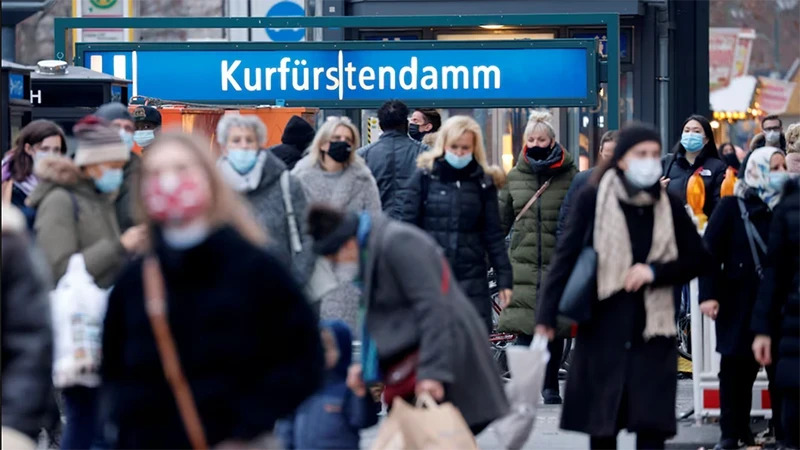Turning point for the German economy
Germany's coalition government has just agreed on a draft budget for 2025, ending months-long disagreements over the national spending plan. The new budget plan is expected to help Europe's leading economy enhance competitiveness and maintain recovery speed in the near future.
 |
| (Photo: REUTERS) |
Analysts say that the ruling coalition government's agreement on the draft budget for 2025 helps relieve Berlin from the burden of prolonged wrangling related to spending plans and debt, which was once a major risk that threatened to weaken the ruling coalition in Germany.
The total budget for 2025 will be 480.6 billion euros (526 billion USD), about 8 billion euros less than this year. Despite this, the German Ministry of Finance has allocated 78 billion euros for investments — a record figure.
Finance Minister Christian Lindner hailed the agreement as the "start of the economic turnaround" for Germany. "With our growth initiative, we are providing important economic policy impetus to make Germany more attractive as a business location," said Lindner.
A total of 49 measures are planned, and various amendments to the law are to be made by the end of the year.
Accordingly, the coalition aims to reduce bureaucracy, ease the burden of high electricity prices on energy-intensive companies, increase investment in research and development, attract foreign skilled workers to Germany, and increase spending on research and development. Tweaks are also planned to make the investment environment more attractive.
The draft budget for 2025 was approved in the context that Prime Minister Olaf Scholz's Government has recorded many positive changes in its efforts to improve the economy.
According to analysts, the inflation storm has eased off. Preliminary data recently released by the German Federal Statistical Office (Destatis) shows that the inflation rate decreased in June. It is predicted that this trend will continue in its slow decline and fall below the 2% mark in August for the first time since March 2021.
The International Monetary Fund (IMF) said that through solutions to support consumers and develop new energy sources, Berlin has overcome difficulties caused by gas supply disruptions from Russia. These drastic steps have helped reduce energy prices and rein in hyperinflation.
With such positive results, the German Institute for Economic Research (DIW) has raised the growth forecast of the economy in its latest report. DIW Berlin now expects the German economy to grow by 0.3 percent in 2024 and by 1.3 percent in 2025.
The IMF affirmed that the German economy has begun to recover from the energy-price shock, with gradual economic recovery expected to continue this year.
Economic expert Geraldine Dany-Knedlik of DIW emphasised that all signs point to a positive recovery speed for the German economy. The personal consumption sector plays a decisive role in the economic recovery process.
In addition, rising real incomes, a strong labour market, and falling inflation help to strengthen people's purchasing power. In addition, the export sector also brings positive momentum, especially in the context that the global economy is improving.
However, Europe's leading economy also faces many "headwinds", in which the thirst for skilled labour is one of the top challenges threatening to pull back growth momentum.
A report just released by the IMF affirms that over the medium term, rapid population aging is expected to hamper economic growth. An aging population will also adversely affect public finances as tax revenue growth slows and spending on pensions and healthcare rises.
Lack of high-quality labour is also a threat to Germany's technological innovation goals. The gap in human resources is increasingly holding back competitiveness and innovation. The consequences of labour shortages are clearly visible as one of the reasons hindering the growth momentum of the economy.
Recent DIW research estimates that the cost of the skilled labour shortage will amount to 49 billion euros in 2024 alone.
Analysts say that the German economy has contracted due to persistent inflation, high energy prices, and weak foreign demand.
The new budget draft is expected to become a solid lever in helping Europe's leading economy successfully break through and regain a sustainable growth momentum.
NDO







READER COMMENTS